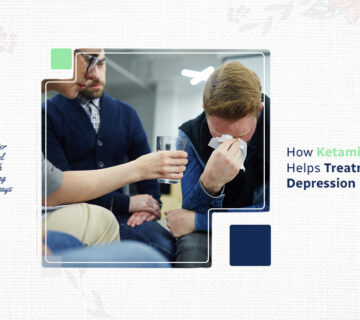Is Tourette Syndrome a Disability?
Tourette syndrome, frequently abbreviated as TS, is a neurological disorder. It’s marked by repetitive, involuntary movements and vocalizations called tics.
Tourette’s can make everyday life challenging, and whether it is considered a disability depends on various factors.
In some countries, like the USA, it’s seen as a disability, but this can vary. The severity of the tics also plays a significant role.
These tics can range from mild to severe and impact various aspects of an individual’s life.
One common question that arises is, “Is Tourette syndrome a disability?”
Knowing “Is Tourette’s a disability?” is essential, especially when it makes daily tasks challenging and leads to unfair treatment.
Let’s take a closer look at Tourette’s syndrome.
What is Tourette’s Syndrome?
Tourette syndrome (TS) is a neurological disorder where people make movements or sounds they can’t control, called tics.
These tics can be sudden, happen a lot, and don’t have a reason behind them.
Some tics are minor, like blinking or throat-clearing, while others may involve jumping or yelling out words.
People with TS may also have other issues along with these tics.
Symptoms of Tourette’s Syndrome
Symptoms can vary widely among individuals, but common signs of Tourette’s syndrome include:
- Motor Tics
These are sudden, uncontrollable movements such as blinking or shrugging your shoulders. You may also find yourself moving your arms or legs repeatedly.
- Vocal Tics
You make These sounds or words involuntarily, such as clearing your throat, grunting, coughing, or sniffing. They can also involve repeating what someone else.
- Complex Tics
These are coordinated movements and sounds like jumping, touching, and hitting yourself. Some people with Tourette’s may also say rude words (though not everyone has this).
- Waxing and Waning Symptoms
Tourette’s symptoms can change, getting worse at times (waxing) and better at others (waning). Stress, excitement, tiredness, or other things around can make the tics happen more often or less.
- Premonitory Urges
Before a tic happens, many people with Tourette’s feel uncomfortable or tense. Doing the tic makes this feeling disappear, at least for a while.
- Associated Symptoms
People with Tourette’s may also have other conditions like ADHD, OCD, anxiety, depression, or trouble learning. These can make daily life harder.
These symptoms can vary from person to person, usually starting when someone is a kid or a teenager.
Adult Onset Tourette
While Tourette syndrome is commonly associated with childhood-onset, it can also show in adulthood.
Adult onset Tourette often present differently from childhood-onset TS and may be mistaken for other conditions initially.
The sudden onset of tics or vocalizations in adulthood can be concerning.
If you’re having these symptoms, you must see a doctor to figure out what’s happening and find the right ways to manage it.
Is Tourette Syndrome a Disability?
Yes, Tourette Syndrome (TS) is considered a disability, although its impact can vary widely among individuals.
TS is a neurological condition characterized by repetitive, involuntary movements and vocalizations known as tics.
These tics can range from mild to severe and significantly interfere with daily functioning, including social interactions, academic performance, and employment.
As such, individuals with TS may face challenges in various aspects of life due to their symptoms.
Tourette syndrome is a disability under the Americans with Disabilities Act (ADA).
It means that people with Tourette syndrome cannot be mistreated in jobs, schools, or public places. They may also get help to make things easier for them in these places.
Can You Get Tourette’s Disability Benefits?
Yes, it’s possible to get Tourette’s disability benefits.
The seriousness of symptoms can differ from person to person, and in some cases, it can significantly affect someone’s ability to work and do daily tasks.
So, does Tourette qualify for disability? To be eligible for disability benefits like SSDI or SSI, you need to meet the criteria set by the Social Security Administration (SSA).
They look at how severe your symptoms are, the limitations they cause, and if you can still work.
To claim disability benefits for Tourette’s syndrome, you need thorough medical evidence.
It involves providing medical records, test results, treatment history, and statements from doctors.
You should also explain how the condition affects your daily life and ability to work.
In the neurological disorders, Tourette’s and schizophrenia are subjects of discussion. So, keep reading.
Are Tourette’s and Schizophrenia Related?
No, Tourette’s and schizophrenia are distinct neurological disorders with different symptoms.
Tourette’s is a neurological disorder characterized by involuntary movements and vocalizations, while schizophrenia is a severe mental illness involving delusions, hallucinations, and disorganized thinking.
However, they can co-occur in some cases, though this is relatively rare.
Tourette’s Awareness Month
Tourette’s Awareness Month happens every May. It’s a time to teach people about Tourette syndrome, promote understanding, and push for more support and resources for those affected.
Treatment for Tourette Syndrome
Treatment for Tourette syndrome depends on how much it affects a person’s life. If the tics aren’t too bad, no treatment may be needed.
But if they’re severe and causing problems at school, work, or with friends, there are ways to help.
Doctors may prescribe medications that can calm down the brain chemicals causing the tics. These medications can also help with other issues like ADHD or OCD that sometimes go along with Tourette’s.
Therapy can also be really useful. One type, called CBIT, teaches people tricks to manage their tics.
Another therapy for Tourette syndrome is Acceptance and Commitment Therapy (ACT). It helps people accept their tics without feeling bad about them and encourages them to make positive changes in their lives.
Solution-Focused Brief Therapy (SFBT) is also helpful. It looks at a person’s strengths and focuses on finding simple solutions to problems.
Conclusion
To sum up “Is Tourette syndrome a disability?” Yes, Tourette syndrome can qualify as a disability under certain circumstances, entitling individuals to various benefits and support services.
While the disability benefits application process may be complex, individuals with Tourette syndrome need to understand their rights to appropriate assistance.
If you’re experiencing Tourette’s syndrome or tics, there are strategies to help you manage.
The Premier Mental Health Healing Pathways specializes in supporting individuals facing these challenges and is available to assist.
If you require guidance in coping with Tourette’s syndrome, please contact us for support.
FAQs
Does Tourette’s count as a disability?
Yes, Tourette’s can be considered a disability if it makes it hard for someone to perform major life activities.
Is Tourette syndrome preventable?
Tourette syndrome cannot be prevented. However, early detection and treatment may help prevent TS from worsening into adulthood.
How common is Tourette syndrome?
It’s uncommon, but about 1 in 100 people have it.
Is Tourette syndrome curable?
Tourette syndrome is not curable, but its symptoms can be managed through various treatments and therapies.
Is Tourette Syndrome a progressive condition?
No, Tourette syndrome doesn’t get worse over time for most people.
Can adults develop Tourette syndrome?
Yes, though it’s more common in kids, adults can get Tourette Syndrome too.






No comment